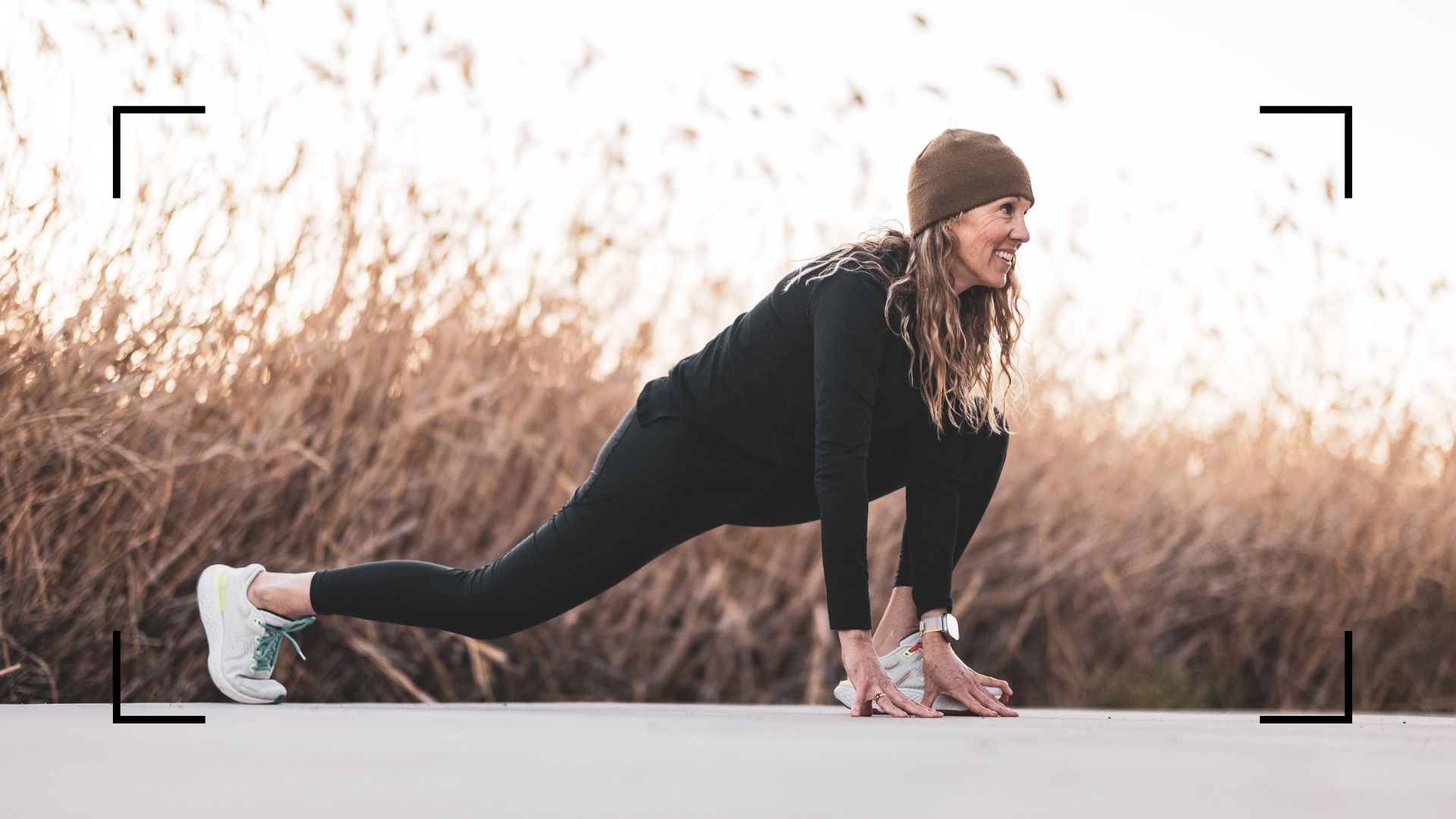6 benefits of exercise in winter, revealed by the experts
Doctors and personal trainers reveal the benefits of exercise in winter - and some of them are pretty unexpected


There are so many benefits of exercise in winter, from our physical health and improving our fitness to our mental health and protecting ourselves against seasonal blues.
Perhaps it's no surprise to you that there are so many benefits to working out in the cold though. Often, unfortunately, it's the activities we find the hardest that are the most beneficial for us. That's certainly the case here, with the unpleasant features of the cold being among the main reasons why it's so good for us.
So, if you're looking for the motivation to work out in cold weather and how to wake up early in winter, here it is. "British winters can make it extremely daunting to go outside and exercise, but as long as you are wrapped up in appropriate workout clothes, getting that all-important fresh air will make all the difference, both physically and mentally," says David Wiener, personal trainer and a specialist at AI-based fitness and lifestyle coaching app Freeletics. With winter now here, this is what the doctors and personal trainers want you to know.
Benefits of exercise in winter
1. Stronger immune system
It's not news that our immune system often bears the brunt of weather changes. We only need to look to our gut health in winter to see that. However, exercise has been proven time and time again to improve the immune system, putting it under just enough pressure to kickstart it for cold weather.
"During winter, our immune systems become weaker, meaning that infections and viruses are more common. One of the benefits of exercising in winter is that our immune system works harder to defend itself against the elements and, in turn, helps our body fight infections," says NHS GP Dr Hana Patel.
Research from Appalachian State University shows that working out at a moderate to vigorous intensity for an hour or less is best to take advantage of the immune-boosting benefits. Where possible, this should be more LISS cardio and 80/20 running though, as high-intensity training for a prolonged period has been shown to suppress the immune system, per the same research.

Dr Hana Patel is a senior NHS GP and academic lecturer with a special interest in women's health, mental health, and sleep. She is also sought for her expertise and opinion as a GP medicolegal expert, both in the UK and internationally.
2. Better lung function
If you've ever been for a run on a cold morning and struggled to breathe, contrary to what you might feel, that's actually a good thing. As cold air is typically drier and has a lower humidity, it can help to improve lung function.
Sign up for the woman&home newsletter
Sign up to our free daily email for the latest royal and entertainment news, interesting opinion, expert advice on styling and beauty trends, and no-nonsense guides to the health and wellness questions you want answered.
"Exercising in cold weather can challenge your respiratory system and increase its efficiency over time. This can be particularly advantageous for individuals with asthma or other respiratory conditions, as it may lead to improved lung health and better overall endurance," says Amanda Place, a certified personal trainer and the founder of Sculptrition.

Award-winning personal trainer Amanda Place is the founder of Sculptrition, a platform that helps you quit fad diets, find balance and create a healthy lifestyle.
She specialises in health and fitness coaching for high-achieving women, helping them transform their body and mind, improve their health and become the best versions of themselves.
3. Exercising in the cold can help to transform harmful fat
There are two different types of fat in the human body: white fat and brown fat. Studies by Shandong University Qilu Hospital show that too much white fat around the abdomen and thighs can lead to a higher risk of heart disease, diabetes, cancer, and metabolic diseases. Brown fat breaks down glucose in the body and fat molecules and helps us to remain at a good body temperature.
When we exercise in the cold, both Dr Patel and Place explain, the activity turns white fat in these areas into brown fat. As further research by the Garvan Institute of Medical Research reveals, there are two hormones stimulated by cold weather - irisin and FGF21. These hormones fire up the fat cells and emit heat, which is a clear sign of brown fat function.
"Shivering, a natural response to cold, elevates calorie expenditure as well as it engages multiple muscle groups," says Place. "The energy required for thermogenesis in brown fat, which is more active in the cold, also contributes to the heightened calorie burn."
4. You'll be exposed to fresh air
There's no denying it, it's hard to wake up early in the morning in winter. With frost-covered windows and dark starts to the day, the idea of leaving bed - let alone the house - isn't exactly tempting.
But fresh air makes a real difference and it's one of the key benefits of exercise in winter, says Wiener, and the other experts agree. "Getting outside and moving your body will help to increase your feel-good endorphins. Whether it's a brisk walk or a quick HIIT workout, it will help to regulate your appetite by temporarily suppressing ghrelin (our hunger hormone) as well as boosting your mood and reducing your risk of stress." It's one of the main benefits of walking generally as well.
When it comes to choosing what to wear, the personal trainer says to "look for moisture-wicking, thermal, windproof clothing to keep you warm and dry." For example, a pair of the best workout leggings, a warm base layer, and a windproof jacket.
David Wiener is a certified personal trainer, advanced nutritionist, lifestyle coach, and fitness writer. He works with AI-based fitness and lifestyle coaching app Freeletics.
5. It can help improve your heart health
Even just standing in the cold forces the body to pump blood harder around the body to keep us warm. Whether you go for a full run or just some mindful running meditation, throwing any kind of exercise into the mix will force your body to work twice as hard, improving overall cardiovascular health.
6. Reduces the risk of seasonal affective disorder (SAD)
Seasonal affective disorder (SAD) is common in winter as there are fewer hours of daylight, says Dr Patel. Typically, symptoms include low self-esteem, additional feelings of stress and anxiety, tearfulness and feeling irritable.
Learning how to combat SAD is a yearly process for those who deal with the condition but regular exercise can really help, says the doctor. "Exercising in winter will help you get more exposure to sunlight, which may help ward off the symptoms."
Is it good to work out in cold weather?
Yes, there are some key benefits of exercising in cold weather - such as an increased rate of fat burn, mood improvements, and better lung function - that aren't available during the warmer months of the year. "Not only will moving more keep you healthy though," says Dr Patel, "It can also keep you warm over the colder winter months." So, there are both long-term and short-term benefits of exercise in winter.
"If possible, the NHS recommends that we try to move around at least once an hour a day in the winter," she adds. "If you are unsure about exercising outside in cold weather, I would recommend speaking to your GP. Cold-weather exercise is safe for most people but if you have certain conditions, such as asthma or heart problems, it is good to review any special precautions you need to take based on your condition or medications."

Do you burn more calories working out in the cold?
Yes, if weight loss is one of your exercise goals for winter and you're looking to learn how to lose weight without exercising too much, you're in luck. "When you work out in the cold, you'll be increasing your calorie burn as your body has to work much harder to keep your body core temperature regulated," says Wiener.
"Furthermore, whilst the body is doing its best to stay warm, it will trigger your metabolism into full effect, and therefore result in more calories burned," he says. "Another thing to consider is if you're walking in windy weather, you will be using more energy to walk through the wind compared to if it wasn’t windy. This will essentially make the wind just an extra level of intensity to your workout, which will help burn more calories." Ankle weights? No need when it's windy outside.
However, personal trainer Place warns, "The actual calorie burn can vary based on factors like the intensity and duration of the exercise, environmental conditions, and clothing choices. While cold-weather workouts offer this calorie-burning advantage, it's essential to exercise safely by dressing appropriately, staying hydrated, and being aware of potential risks associated with extreme cold."
Tips for exercising in cold weather
- Make sure you have the right kit: To experience all the benefits of exercise in winter, you need the right kit. "Kit is particularly important when it comes to staying motivated over the colder months. Investing in high-quality cold-weather workout gear can make a significant difference to both your comfort and motivation," says Weiner. For example, you might like to opt for a pair of the best running shoes for wetter climates if you're heading outdoors and learn how to keep your feet warm with insulating socks.
- Warm up properly: "Dynamic stretching is a more active way of stretching before a workout, meaning you will be performing a movement whilst stretching, rather than staying in the same position," he says. "This type of warmup will get the blood flowing to larger muscle groups and kick-start the nervous system."
- Find a goal: "Whether it's improving strength, running a certain distance, or maintaining your current level of fitness, having objectives to work toward can keep you motivated," says Place.
- Create a workout schedule: "Plan your workouts in advance and stick to a regular schedule. Treat exercise appointments with the same importance as any other commitment, and you're more likely to follow through," she says. That way, you can get the most benefits of exercise in winter at a time that suits you.
- But be flexible: "Adjust your workouts to accommodate the shorter daylight hours and colder temperatures," she says. "Exercise in the morning or at lunchtime during winter, for example."

Available in six different colours and a great range of sizes, the Nike Pegasus Trail 4 GORE-TEX are a great weatherproof option for exercising outdoors this winter. These running shoes have responsive cushioning with a waterproof GORE-TEX layer and ankle gaiter to keep you feet warm and dry.

The Bircham by Seal Skinz is a waterproof, windproof, and breathable ankle sock, ideal for keeping your toes toasty and dry in the colder months. Each pair has a three-layer construction combining a 100% waterproof hydrophilic membrane with a Merino wool interior. Also available in multiple colourways.

The newly-released Nike Dri-Fit Women's Running Jacket is made from super-smooth and sweat-wicking fabric so it's perfect for running, and the all-over reflective print is a fashionable but practical addition that keeps you seen. There are secure pockets for your essentials and pull-cord hood for those chillier days.
Exercising in cold weather isn't for everyone though. While there are so many benefits to exercise for our mental health, even if it's just a short walk around the corner, don't be too disheartened if you just can't pluck up the workout motivation on one or two mornings. It's not the end of the world, Wiener says.
"If you miss a workout, don’t let that derail your progress, just get back to it the next day. Sometimes it will be simply too cold to work out outside or go for a walk, and that’s ok."

Grace Walsh is woman&home's Health Channel Editor, working across the areas of fitness, nutrition, sleep, mental health, relationships, and sex. She is also a qualified fitness instructor. In 2025, she will be taking on her third marathon in Brighton, completing her first ultra marathon, and qualifying as a certified personal trainer and nutrition coach.
A digital journalist with over seven years experience as a writer and editor for UK publications, Grace has covered (almost) everything in the world of health and wellbeing with bylines in Cosmopolitan, Red, The i Paper, GoodtoKnow, and more.
-
 Princess Beatrice just wore the maxi dress I've got my eye on for summer occasions - and she styled it with comfy Zara flats
Princess Beatrice just wore the maxi dress I've got my eye on for summer occasions - and she styled it with comfy Zara flatsShe took style tips from Kate Middleton, choosing chic French brand Sezane
By Caroline Parr Published
-
 Royal style made casual - Zara Tindall's one-shoulder dress, denim jacket and Aspinal bag are the epitome of chic summer comfort
Royal style made casual - Zara Tindall's one-shoulder dress, denim jacket and Aspinal bag are the epitome of chic summer comfortZara Tindall's outfit in Bahrain was a more relaxed take on her signature style and was made up of timeless staples.
By Emma Shacklock Published